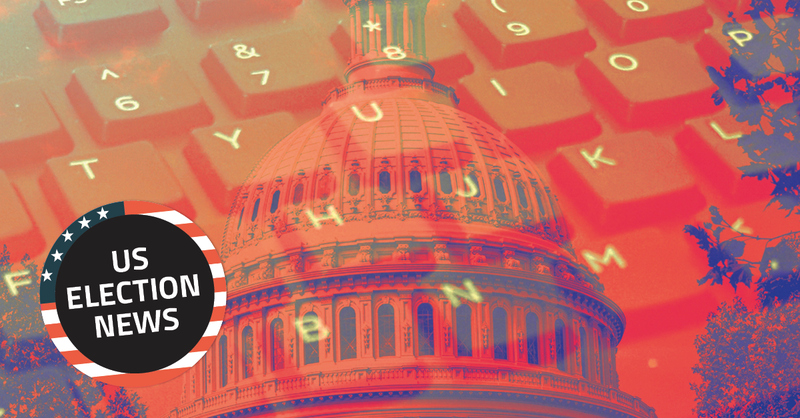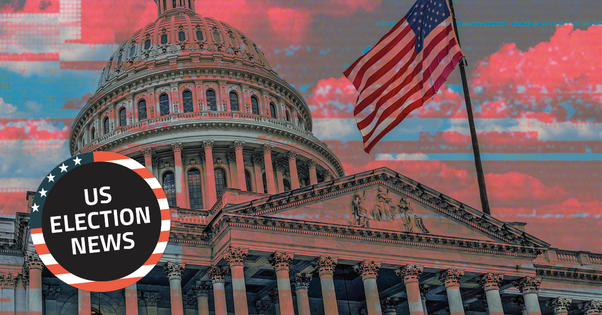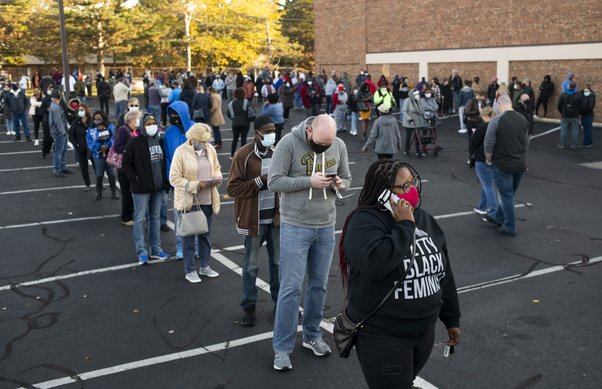As the US election approaches, a Global Witness investigation finds that Meta's moderation systems are struggling to keep pace with hate speech.

The US election is here and the political conversation continues to erupt into hatred and division online.
With tech platforms scrambling to curb harms on their services, users’ ability to report abusive content is a vital mechanism to identify where content has fallen through the cracks of moderation.
User reporting is a crucial protection for people who are targeted by online abuse. It is often the only way they can flag to the platform that they are unsafe and need help. But despite commitments to do more than any other tech company to protect elections in 2024, Meta is still failing to act promptly on hate speech and harassment that we have reported to them.
In response to a comment describing Jewish people as "parasitic", Facebook initially stated that it was not able to even review whether the comment violated its policies, as it is focused on “the most severe cases with potential for real world harm”.
The comment was posted by a user on a Jewish candidate’s Facebook page. In a recent study, the Anti-Defamation League reported a 200% increase in antisemitic incidents in the US over the past year. The comment was eventually removed by Facebook after we had approached Facebook for comment on this investigation.
Facebook’s Hate Speech policy states that they consider Tier 1 Hate Speech to include “dehumanising speech”, which might compare protected groups to insects, animals, bacteria or assert the “subhumanity” of a group. Our results show that Meta is not taking sufficient steps to protect political candidates and marginalized communities ahead of the US election.
And as we learnt from the Facebook Files, if they’re not adequately resourcing this in the US, it’s likely to be worse in other parts of the world.
Our investigation
We investigated US Senate candidates’ Facebook pages to see what kind of comments they were receiving on their posts, and reported a sample of comments to Facebook where we assessed that the post may have breached a Facebook community standard.
After more than three days, 13 of 14 posts we reported had still not been reviewed by Facebook moderators.
One comment, which made explicit sexual claims about Kamala Harris, was reviewed in this period and was determined by Facebook not to violate Community Standards. After we had approached Facebook for comment on this investigation, they reversed this position, and removed the post for violation of Community Standards.
The posts that Facebook failed to review within three days after we reported them using the platform’s own reporting system included:
- Wishing death upon a political candidate
- Saying that people of a specific religion or ethnic group “are plagues,” or that they are “inbred” and “parasitic”
- Calling women political candidates an “ugly whore”, a “slut” and saying that “Someone should just spit in her ugly face”
- Using homophobic slurs against political candidates
These comments did not occur in isolation within otherwise healthy conversations – they were not lone bad apples.
Some were posted by users who repeatedly posted similar sentiments using slightly changed language.
Others were posted within conversations that contained hate speech and harassment, such as antisemitic content targeted at Jewish candidates or derogatory comments about physical appearance targeted at women candidates.
When we did receive updates from Facebook in response to 12 comments, none were removed within three days.
Later, we received an update in response to one more comment saying that Facebook was unable to review the comment “as our review team is focused on the most severe cases with potential for real world harm.”
While Facebook did not respond directly to our request for comment on our investigation, we noticed that after receiving our request, Facebook removed eight of the most egregious examples we had identified, updating their notifications that said they had not removed the content. Although this a positive sign, it would be concerning if Facebook were relying on organisations like Global Witness to escalate reports of hateful comments in order to remove them. The remaining hateful comments which we identified were not actioned by Facebook.
The harm caused by hate comments online
The tropes we saw in these hateful comments are not simply offensive or unpleasant. The use of dehumanizing terms about religious and ethnic groups – as Facebook’s community standards recognize – can contribute to online and offline violence against them.
And particularly in the context of an election, there are serious democratic ramifications. Degrading women in politics as “whores” or “sluts” is one common tactic of gendered disinformation campaigns, which aim to delegitimize women as political participants.
The effect is to make women politicians afraid to speak out or even feel that they have to leave politics altogether.
Facebook’s policies on bullying and harassment of public figures give perpetrators the opportunity to attack.
Facebook only protects “adult public figures” from calls for death if the person has been “purposefully exposed” – for example, tagged directly in the comment so that they are likely to see it.
Facebook only commits to removing threats of serious injury to public figures if it believes those threats are credible.
And for action to be taken on some policy breaches, the target or their representative must report it themselves. This unfairly puts the burden on those who are being actively attacked online.
What does this mean for the efficacy of Meta’s moderation systems?
Of course, this is a small number of posts, and no moderation system can be expected to be perfect and instantaneous. However, the reporting system should enable users to alert Meta to content which may violate their terms, yet may have been missed by automated systems. A system which responds quickly to reports of hate and harassment is essential to protecting political candidates during an election period.
Meta has said that they “have around 40,000 people working on safety and security” to help protect elections in 2024. And indeed, there was some evidence of good practice in our investigation.
On some other comments observed on candidates’ Facebook pages, there were alerts about false or altered information included within the comment.
Facebook also had “most relevant” filters which automatically hid comments likely to be spam. As noted above, Facebook did remove six of the hate speech comments we identified in our request to comment.
The question remains whether Meta’s investment in trust and safety is in fact enough to quickly deal with the risks that tech companies enable on their platforms.
At this stage in an election campaign, political candidates’ pages are likely to be flashpoints for divisive content.
The lack of a review of these reports within three days suggests that there is insufficient moderation capacity to promptly engage at rapid pace with high-risk content on high-risk pages during a high-risk election. We are calling on Meta to:
- Invest more and publish the steps they are taking to upscale trust and safety teams ahead of the election and the post-election period in the US and around the world, when the risks of hate and disinformation are extremely high
- Increase the speed of its review process so that it can promptly investigate all user reports
- Review their Bullying and Harassment Policy on "adult public figures" to reduce the burden on those targeted to be purposefully exposed to or have to report violating content themselves. Requiring targets to report complaints such as “sexualising a public figure" themselves means that these policies may disproportionately burden women
Methodology
We collected comments on posts from the public Facebook pages of 67 candidates running for election to the US Senate this year: 31 Democrat, 33 Republican and 3 Independent.
We selected the Democratic and Republican candidate on the ballot for each state with Senate elections this year.
Where the incumbent was an Independent, or there was not a candidate on the ballot from both parties, we also included the main independent candidate for that state.
Where a candidate had multiple Facebook pages (e.g. an official page and a campaign page), we chose the one which had more followers.
We analyzed over 200,000 comments collected from Facebook posts dating from 6 September to 6 October 2024.
We used Google’s Perspective API as a filter to help surface comments that were likely to be toxic, severely toxic, contain an identity-based attack or be sexually explicit.
These comments were reviewed by analysts to identify particularly egregious examples, which were then reviewed against Facebook’s community standards to identify potential breaches.
Some of the content we reviewed targeted the candidate whose page it was posted on, while some targeted different candidates who were being discussed.
In other comments, the target of the hate was a marginalized group – such as invoking hate speech when explaining why the commenter agreed or disagreed with a candidate’s political position.
Potential breaches identified fell under the Hate Speech policy and/or the Bullying and Harassment Policy.
These were then reported to Facebook using the in-platform reporting mechanism against the closest analogous option (“Bullying, Harassment and Abuse” or “Violent, hateful or disturbing content”).
14 comments were reported to Facebook. However, we only received notifications regarding 13 comments. We were unable to find out why one of our reports wasn’t logged at all. Although none of the comments were removed by Facebook within three days, eight of the most egregious examples were removed after we approached Facebook for comment on this investigation.


